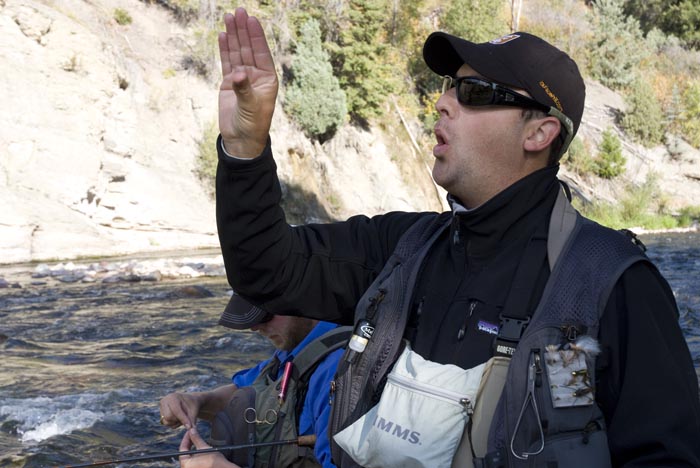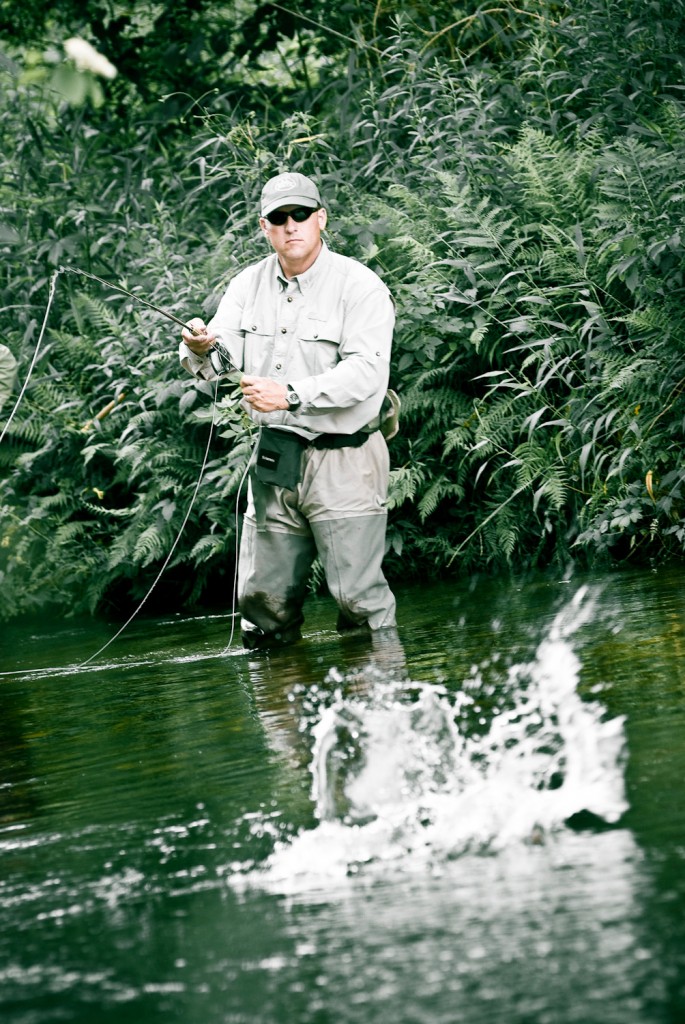If any of you have fished for cutthroat trout with dry flies you know most of the time you need to wait a good while on the hook set. The first time I fished for cutthroats I missed many more takes than I care to share. Cutthroat trout are known for their slow motion rises, and if you set the hook too quick, you’ll end up just pulling the fly out of the trout’s mouth.
Just like cutthroat’s, big rainbow and brown trout also require you to count, 1 Mississippi, 2 Mississip…in your head before you set the hook to ensure consistent hook ups. If you can still see the fish eating your fly you need to wait longer. A big trout comes up, opens it bucket mouth, and usually doesn’t close it fully until it’s submerged completely below the surface. And if a fish is chasing after and eating your dry fly moving downstream, you have to wait even longer.
Keep in mind also that the bigger your dry fly, the longer you need to wait on your hook set as well. If your fishing a big size 4 extended body foam hopper, you’ll want to make sure the trout gets all of the fly in it’s mouth. Quick hook sets will often result in the fish just getting the tail end of the fly in its mouth or you’ll get what I call a hair lip hook up, that quickly results in a spit fly.
Every angler no matter what their skill level, will end up setting the hook too quickly occasionally. Especially when trout catch you off guard when your scratching that nagging itch or looking at another trout rising. Just remember to give the big boys plenty of time to munch on your fly before you set the hook, and more trophy trout will end up in your net.
Keep it Reel,
Kent Klewein Gink & Gasoline www.ginkandgasoline.com hookups@ginkandgasoline.com



Kent, I know you practice catch and release as do I. Most of my fishing is large mouth bass and often with bass you need to wait for the hook set. However sometimes you can wait too long and allow the fish to swallow the hook great reducing his chance of survival. I have learned across the years to cut the hook off and leave it in. Do you have this problem with trout and if so how do you handle it?
Tommy,
In this post I was referring to how big fish require you to wait a little longer before you set the hook with dry flies. If you don’t wait long enough, most of the time you’ll pull the fly out of the trout’s mouth and fail to get a hook up. Every once in a while we’ll hook a trout deep. I use barbless flies most of the time which allows me to get the flies out with very little damage to the fish, even if it’s hooked deep. However, if I do feel I’ll harm the fish further trying to take the hook out I’ll cut the tippet and leave the fly. This way the fish has a better chance at survival.
Kent
Best part about being a Pre-mature hook setter is that usually means you won’t sting a fish with the hook point and you have a better chance of him taking the fly again. I call this “locating” to make me feel better. I also tell myself I enjoy seeing the fish as much as catching them. I also cry myself to sleep because of this.